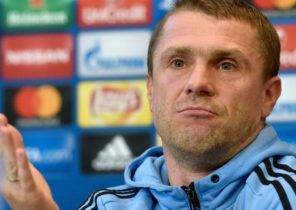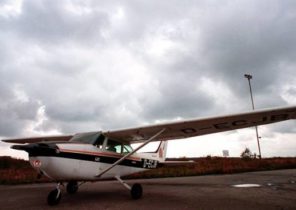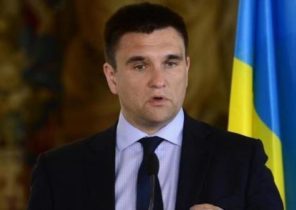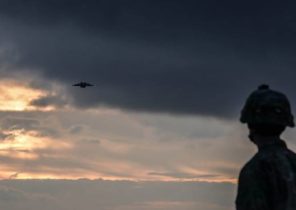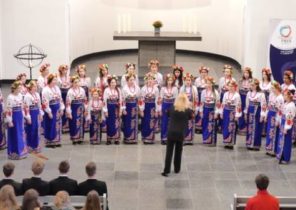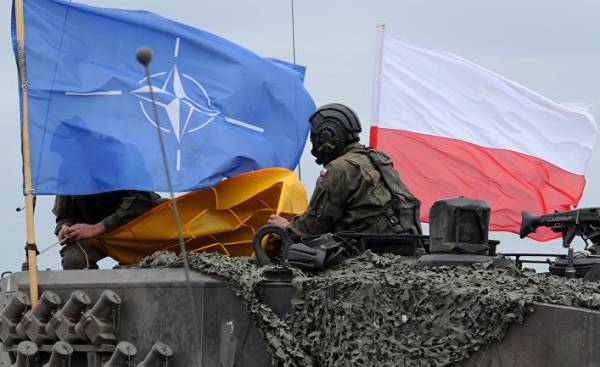
A coup was planned for election day. More than a dozen Kremlin-connected conspirators, dressed in fake police uniforms and armed with machine guns, allegedly preparing to storm the Parliament of the small Balkan country of Montenegro and to kill its Prime Minister. Their goal, according to state investigators, was to prevent the entry of a country with a population of 620 thousand people in NATO, which United States-led Alliance would get control over almost all the ports of the Northern Mediterranean — from Gibraltar to the Bosphorus. In October by an informant, the real Montenegrin police surrounded the conspirators, as soon as polling stations opened for voting. Two of the ringleaders of the alleged agents of Russian secret services — is now in Russia.
The failed coup was a reminder of what began a new battle for Europe. More than 25 years after the collapse of the Soviet Union Vladimir Putin seeks to revive Russian Empire from the Baltic to the Balkans and from the Black sea to the UK. In the period from January 29 to February 3, in Ukraine Pro-Russian armed groups has caused thousands of strikes, starting a new attack on the positions of armed forces of the Pro-European government. Using propaganda, agent provocateurs and direct military threat to Estonia, Serbia, Moldova and other countries of Eastern Europe, Putin is trying to undermine the democratic governments of former Communist countries, threatening the security of millions of people. But in the West he seeks to build alliances with nationalist and anti-European forces of France, Germany, Hungary and other major democratic countries.
Perhaps the most important front in this new battle takes place on the Western flank. For the past three months, according to senior administration officials trump and other participants, there are unspoken but important in terms of the impact negotiations over whether the United States to confront Putin leading its new campaign, or to give Russia its sphere of influence in Eastern Europe. If you choose the second option, Russia, according to this theory, the answer will join US for a joint struggle against ISIS (an organization banned in Russia — approx. ed.) will work to reduce nuclear arsenals and to help in the containment of China.
Donald trump has publicly announced aspects of this deal that made and his key advisors — Steve Bannon (Steve Bannon) and the national security Advisor, Michael Flynn (as Michael Flynn) that on February 13, was forced to resign because of his secret conversations with the Russian diplomat. White house officials who speak out in support of such transaction (totally or partially), believe that the basis for a serious fight against Islamic extremism, and China’s growth is nationalism.
Against the conclusion of a Grand bargain with Russia are such members of the Cabinet as the Minister of defence of the USA James Mattis (James Mattis) and Secretary Rex Tillerson (Rex Tillerson), which (with the support of virtually the entire foreign policy establishment of the USA) believe that in order to maintain stability in Europe and beyond is extremely important to create multilateral alliances.
Because of the resignation of Flynn’s for those who would like to develop a Pro-Russian strategy to achieve this will now be politically difficult. They have had some new challenges on February 14, when The New York Times reported that a year before the US presidential election assistants trump repeatedly communicated with representatives of the Russian special services. As you progress several investigations by law enforcement, intelligence and a group of Congress, opportunities for rapprochement with Russia is becoming less, space is limited to the White house, which has not yet abandoned plans to make a deal.
Those who spoke with trump about the big deal with Russia, saying that she’s attractive to him as a businessman. “The President really wants to conclude the transaction, and he wants to be perceived as a person capable of changing the US attitude to the world,” says the Republican Senator from Tennessee Bob Corker (Bob Corker), the head of the Senate Committee on foreign relations. He spoke out against big deals with Russia during extensive conversations with trump in new York on November 29, when interviewed as a candidate for the post of Secretary of state. “But making deals for the sake of transactions without clear ideas about where they might lead us], may cause serious harm to our country and the rest of the Western world,” says Corker.
It is unclear whether the idea of concluding large transactions initially American, or “planted”. Critics are wondering what the benefits of such a transaction would be for Washington. Russia, they argue, is weak. Its economy two years is in recession, and less of the Italian economy. Over the past six months the only Russian aircraft carrier, diesel rattletrap Soviet times, barely made it to Syria and back, losing during this time as a result of accident the two aircraft. Russia persuades US to create (without any conditions) the Alliance to fight ISIL, and Putin, during his first (after the inauguration of the trump) telephone conversation with the American President have already expressed their desire to seek renewal of measures on arms control. According to one of America’s foremost conservative expert on foreign policy Eliot Cohen (Eliot Cohen) from Johns Hopkins University, to give Eastern Europe Moscow (after Yalta was considered in Western diplomacy almost heretical step) just like that, for nothing “would be foolish and immoral; moreover, it would change all the fundamental principles of American foreign policy after the Second world war.”
Any decisions about the transaction with Russia in the near future is foreseen, but the prolonged uncertainty about U.S. willingness to support the East European democratic country allows to reconsider the position. The leaders of Bulgaria and Moldova once again lean towards Moscow. And opposed to EU candidates for the presidency of France and Germany find common ground with Moscow on the eve of elections that will be held this year, than cause anxiety in the ranks of traditional allies of the United States. “Liberal international order which the United States and its European allies support after the Second world war, threatens to collapse”, warn the authors of a recent Carnegie Foundation report on the deterioration of relations between Russia and the United States, “and there is more fear that the United States can abandon their obligation to preserve this order.”
Montenegro, a country with a population smaller than San Francisco, and the army, numbering only about only about two thousand people, throughout most of its history is passed from hands to hands from one Empire to another — from the Roman Empire and ending with the Third Reich. After 10 years of negotiations and trials the country is at the threshold of joining the world’s most powerful military Alliance — this time voluntary. In may, its leaders signed with NATO, the Protocol of accession to the Alliance, and 24 of the 28 member countries of the Alliance has ratified its membership. Remained only Spain, Canada, the Netherlands and the USA. Trump makes Montenegrins worry — they are not sure that they will be able to join the Alliance. “If Putin asks trump to admit Montenegro and really give him something in return, we don’t know what will happen then,” says nebojša Medojević (Nebojsa Medojevic) the Deputy of the Parliament of Montenegro, which supports the idea of joining NATO. So Trump has yet to say whether it supports the country’s accession to the Alliance.
Is warm deep-water port of Montenegro in the Mediterranean sea gives the country a special value in the eyes of Putin, and he, as you know, is willing to do anything when on considers what is at stake is its strategic interests. Its attack on the Crimea in 2014, the Kremlin has carried out the first in Europe a seizure a major power since world war II. In the course of the events of the Russian special forces under the guise of fighters of a local self-defense groups one day took control of the Crimean Parliament. They appointed a loyal Prime Minister- Sergey Aksenov, which paved the way for the full and unconditional annexation of the Peninsula by Russia.
Some of the same commandos who gained fame as “little green men”, then appeared in the Eastern regions of Ukraine. Although the West has decided to isolate Russia through sanctions, more severe than the restrictive measures introduced against the Soviets during the cold war, Russian fighters have continued to seize administrative buildings in the cities of Donetsk and Lugansk regions to appoint to senior positions of the warlords. As a result of a separatist conflict, which has killed more than 10 thousand people, and more than two million people were forced to leave their homes. Dozens of people were killed during the recent outbreak of hostilities that occurred after January 28, Putin and trump held his first after the inauguration of a telephone conversation
Putin felt the strength of the West and earlier in Estonia, one of the five countries-NATO members directly border Russia. In September 2014 a group of Russian soldiers allegedly crossed the border with the help of smoke grenades and radio transmitters, has kidnapped an Estonian security officer and transported him to Moscow, where he stood trial for espionage. The RAID, made two days after President Obama visited the country, was to show that “Russia is doing in this part of the world all he wants,” said in an interview with Postimees Estonian MP and former Minister of defence Urmas Reinsalu (Urmas Reinsalu.
Such provocations, along with systematically undertaken by Russia cyber-attacks and violations of NATO airspace, and forced the Alliance to admit their own weakness — he didn’t know how to proceed with the new approach of Moscow to the methods and means of warfare. According to article 5 of the NATO Charter, all member countries must defend each other in case of attack. But what is an attack, not clearly defined. Can a cyber attack to be a pretext for retaliation NATO? And what if the attackers acted under the guise of local militias?
United States take retaliatory action using more traditional methods. A week before the inauguration of the trump in Poland on a rotating basis, were transferred about four thousand American servicemen. But Putin in his actions is not limited to Central and Eastern Europe. The serious crisis facing the project of European integration — Britain voted to exit the European Union, the growing influence of anti-European parties. How to order, intensified Putin, offering an alternative to the rigid nationalism, defined as a counterweight to the liberal values of the West. And he found many fans. During his first official visit to Europe after joining trump in the position Putin decided to visit his friend Viktor Orban (Viktor Orban), Prime Minister of Hungary, who promised to turn his country into an “illiberal democracy” — by creating it, mainly, on the model of Putin’s Russia. “It’s in the air — we all feel that the world is in the process of substantial restructuring,” said Orban after the meeting with Putin in Budapest on the second of February.
Less than a week after winning a trump, as the result of the elections in the two former satellite States of Moscow, came to power Pro-Russian leaders. In Bulgaria which is a member of NATO and the European Union, was elected President, the former air force commander and a newcomer to politics named rumen Radev (Rumen Radev), winning thanks to his promises to balance the country’s alliances with the West. Speaking to reporters on election day, November 13, he said that calmed him down trump’s words, promised “to work to improve the dialogue” with Russia. “It gives us hope — great hope,” said Radev. Much like the signal was received that day and from the newly elected President of Moldova, Igor Dodon, during the election campaign which calls for the country’s leadership to cancel the Association agreement with the EU. “I believe that the agreement we are no pros did not give”, — stated Putin smile during their press-conference in the Kremlin on January 17.
This trend is observed in Western Europe. In France, the leaders of the National front, the party that is dreaming about the collapse of the EU, in 2014, received a loan in the amount of 11 million euros from the Bank associated with the Kremlin. The leader of the party marine Le Pen (Marine Le Pen) promised in early February that in case of victory in the presidential election this spring will pull France out of NATO. According to preliminary exit polls she is leading.
And next door, in Germany, intelligence agencies of Berlin has accused Moscow of organizing the campaign on “propaganda and misinformation” ahead of the September Federal elections in Germany. According to Stefan Meyer (Stephan Mayer) out of the Bundestag Committee on intelligence, the campaign aims to weaken the chances of Chancellor Angela Merkel for re-election for a fourth term and thus to support the “Alternative for Germany” party right-wing populists, calling on Berlin to cancel sanctions against Russia. “If you want freedom in the Western world, if you want freedom and peace in Europe, then you can get this only with Russia,” — said the Chairman of the party in Berlin Pazderski Georg (Georg Pazderski).
The question is, will you join this parade of trump. At first, everything pointed to the fact that Yes. In July, he stated that Putin’s annexation of Crimea may have been legitimate, and that he would consider the lifting of sanctions, “if Russia will help us get rid of ISIL.” He said that both sides can work together on nuclear issues. After the election, in January, trump continued to say in the same spirit. The United States and Russia “are likely to work together to solve some of the many serious and urgent problems and tasks facing the world!”, — he wrote in his microblog on Twitter.
Upon taking office, trump was initially maintained its accommodative rhetoric. In a telephone conversation with Putin, which took place on 28 January and lasted about an hour, they discussed possible areas of cooperation including the fight against ISIS and other Islamic terrorist organizations, the proliferation of nuclear weapons and the possible economic and energy deals, said a senior official from the White house, which is connected to the line during the conversation. According to the report, White house telephone conversations between trump and the President of Ukraine Petro Poroshenko and NATO Secretary General Jens Stoltenberg (Jens Stoltenberg), they were talking about military operations near the Ukrainian border. Moreover, the Pro-Russian forces are operating in the Central regions of Ukraine, and, according to some Russia experts in the administration of the President, such rhetoric has triggered fears that the United States can accept as legitimate the seizure of the territory of Russia.
According to this senior administration official, trump is willing to go on serious concessions to Moscow in exchange for cooperation in some of these areas. Trump is not going to turn away from NATO, the official said, but he believes that the amount that countries pay to the budget of the Alliance and which are based on a percent of GDP, established several decades ago, apparently, obsolete. According to a senior official, trump offered to “renegotiate the contract”. Trump also told the councilors that, in his view, “it is possible that NATO needs to perform another mission, and the Alliance should focus on radical Islam.” This in itself could be for Moscow a huge victory.
As a rule, the President may request and obtain from the national security service a detailed summary of important issues such as the future of Eastern Europe or the reset of relations with Russia. You may need to the national security Council held on this subject several briefings and also conducted a top-secret intelligence assessment. But, as reported by the journalists Time a sources, tend to improvise the White house, trump is unlikely to departments interact. And the interaction that exists, is irrelevant to the power structure, surrounded by trump. According to two sources familiar with the issue, Bannon leads his own group on the development of strategic initiatives that are not linked to traditional national security structures and which will conduct their own assessment of the policy options against Russia. While trump continues to think abstractly, hypothetically, said the source publication. But, according to other administration officials and external analysts, it would be possible to make such concessions to Moscow, as the reduction or withdrawal posted in Central and Eastern Europe of American missiles, the easing of sanctions, imposed due to interference in the elections or because of the invasion of the Ukraine, or the softening of the rhetoric against the annexation of the Crimea. According to the official, details of any transactions with Russia trump has not yet been considered.
The intention of the trump to conclude a large deal with Russia said Bannon, who said that the biggest strategic threat to the United States and Europe is radical Islamic terrorism. Opinions’bannon is far from unambiguous. In his famous speech, which made in 2014, he criticized Putin, but praised the traditionalism of the Russian President. “Putin and his entourage is really a kleptocracy, which is actually imperialist power seeking to expand, then said Bannon. We of the Judeo-Christian West, we should listen to what he’s talking about when it comes to traditionalism, especially where we are talking about where it supports the foundations of nationalism. Thanks to strong nationalist movements in countries become strong and their neighbors, and these are the bricks of which built Western Europe and the United States, and I believe that is what helps us move forward.” And Bannon assistant for national security Affairs Sebastian Gorka (Sebastian Gorka) in their rejection of Putin was not so scrupulous. “By nature he’s just a bully,” said Hill about Putin, in a speech in 2015, and “it should be to do what they do to bullies, and punch him in the nose it is necessary to quickly and strongly it will put him in his place”.
Against rapprochement with Russia, say sources familiar with the discussions, are the newly appointed trump the Minister of defense and the Secretary of state, and almost the whole Republican-democratic foreign policy establishment on Capitol hill, in Washington and throughout Europe. “Tillerson and Mattis took the traditional view that we have in relation to Russia,” said Corker. But, he said, “in the White house there are other circles in which things can look totally different.”
Trump faces the most significant opposition on Capitol hill. Senators John McCain (John McCain) and Lindsey Graham (Lindsey Graham) led a fierce struggle against any rapprochement with Putin, which could ease the sanctions. Instead, they want to impose even more stringent sanctions against Russia over its intervention in U.S. elections. Senate majority leader Mitch McConnell (Mitch McConnell) said that he was against lifting the sanctions against Putin.
The contradiction between trump, members of his Cabinet and most of his party has led to confusion in determining the position of the US, even in his administration. Once in late January-early February, the Pro-Putin forces in Ukraine renewed its attacks, the US Ambassador to the UN, Nikki Haley (Nikki Haley) made a harsh statement. “Crimea is part of Ukraine,” said Haley, speaking at a meeting of the UN security Council on the second of February. And “our sanctions imposed over the annexation of Crimea will remain in force as long as Russia does not regain control over the Peninsula to Ukraine.” Press Secretary of the White house Sean Spicer (Sean Spicer) in a few days, confirmed this position during a briefing. But some senior administration officials say they do not believe that Hailey expressed the opinion of the President, and that Flynn was unhappy with this statement.
The unwillingness of trump to draw attention to Russia’s intervention in U.S. elections (and, incidentally, in other countries, too) creates more confusion and complicate the situation. According to a senior White house official, that Putin interfered in the process, which is the main manifestation of American democracy, have no impact on the opinion of the trump of the Russian leader, or the opportunity to bargain with him. “People may say that we are also interfering in other people’s elections,” the official said. According to officials, trump does not know about other actions aimed at undermining democracy in many countries of Europe.
Millions of Europeans who were the main objects of influence of Putin, and on which he threw his principal force, is not just alarming — it’s terrifying. “It would be absolutely naive to underestimate the actions of Vladimir Putin and the Russian government taken to try to destabilize Western democratic countries, — said the Deputy of the Bundestag Meyer. Is a clear agenda for Russian authorities”.
Montenegrins future hangs in the balance. The vote on the adoption of the country into NATO has been stalled in the Senate. According to a senior official of the national security Council, the White house has no plans to approve the membership of Montenegro in NATO.

